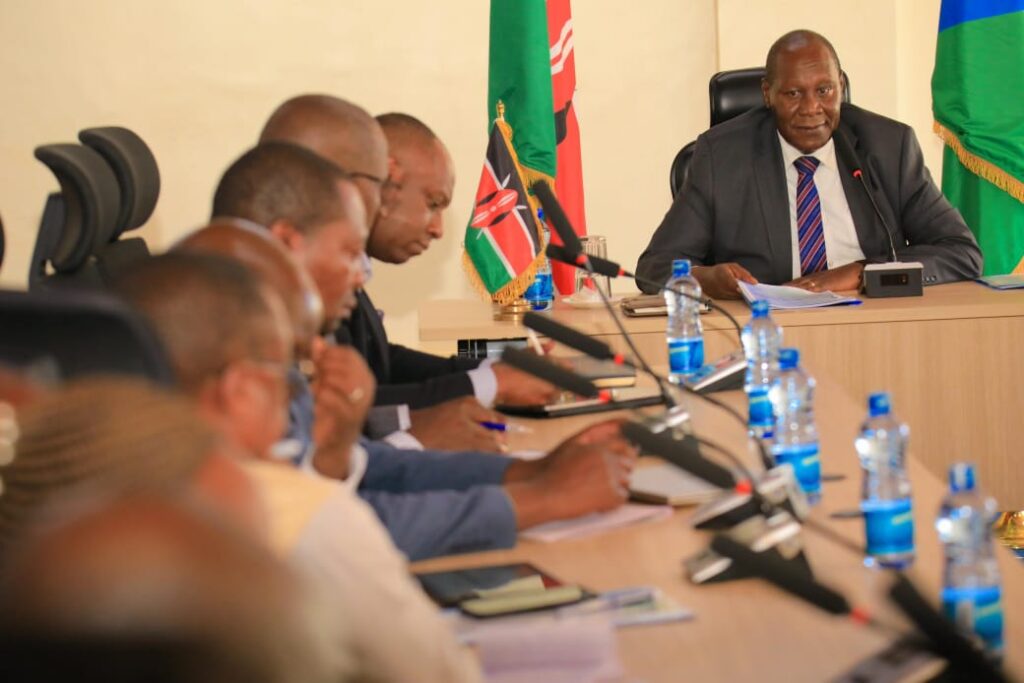
Kitui County is poised to become a leading force in Kenya’s livestock sector following the launch of two groundbreaking projects aimed at transforming livelihoods, boosting food security, and driving rural prosperity.
Livestock Principal Secretary Jonathan Mueke, in a joint announcement with Governor Dr. Julius Malombe, unveiled plans for a 5,000-acre commercial feedlot and a state-of-the-art 100-acre Livestock Training Institute in Kanyonyoo. The ambitious initiatives are part of a broader government strategy to modernize agriculture and increase the livestock sector’s contribution to the national economy.
“These projects are more than just buildings—they’re a lifeline for farmers, a catalyst for job creation, and a major step toward self-sufficiency in arid and semi-arid regions,” said PS Mueke during a stakeholder engagement in Kitui.

Approved by the Kitui County Executive on April 9, 2025, and followed by stakeholder visits and community sensitization on May 2, the twin projects aim to position Kitui as a regional hub for high-quality beef production and livestock education.
The commercial feedlot will introduce modern fattening systems that enhance livestock value, preparing animals for local and export markets. Meanwhile, the Livestock Training Institute will offer cutting-edge training in animal health, production techniques, range management, and value addition—skills critical for the next generation of livestock professionals.
Under Mueke’s leadership, the Ministry of Livestock Development is replicating similar models in counties such as Baringo, Meru, Wajir, Migori, and Nandi Hills. The ultimate goal is to grow the livestock sector’s contribution to Kenya’s GDP from the current 12% to 20%—a significant leap for the economy and rural development.
What sets the Kitui projects apart is their wide reach. The initiatives will serve communities across Makueni, Machakos, Garissa, Kwale, Wajir, Mombasa, Taita Taveta, and Lamu counties, cementing Kitui’s role as a national livestock innovation hub.
“Kitui is setting the pace, and we’re proud of the collaborative spirit shown by the county government. These projects will not only create thousands of jobs but also elevate Kenya’s competitiveness in the regional and global beef industry,” PS Mueke added.
With a track record of innovation in both public and private sectors, Mueke is steering Kenya’s livestock industry toward a future defined by sustainability, profitability, and grassroots empowerment.
As bulldozers move in and classrooms begin to take shape, the people of Kitui—and Kenya at large—can look forward to a new era where cattle are not just a cultural asset, but a cornerstone of national prosperity.


**mounja boost official**
MounjaBoost is a next-generation, plant-based supplement created to support metabolic activity, encourage natural fat utilization, and elevate daily energywithout extreme dieting or exhausting workout routines.
**boostaro official**
Boostaro is a purpose-built wellness formula created for men who want to strengthen vitality, confidence, and everyday performance.
Can you be more specific about the content of your article? After reading it, I still have some doubts. Hope you can help me.